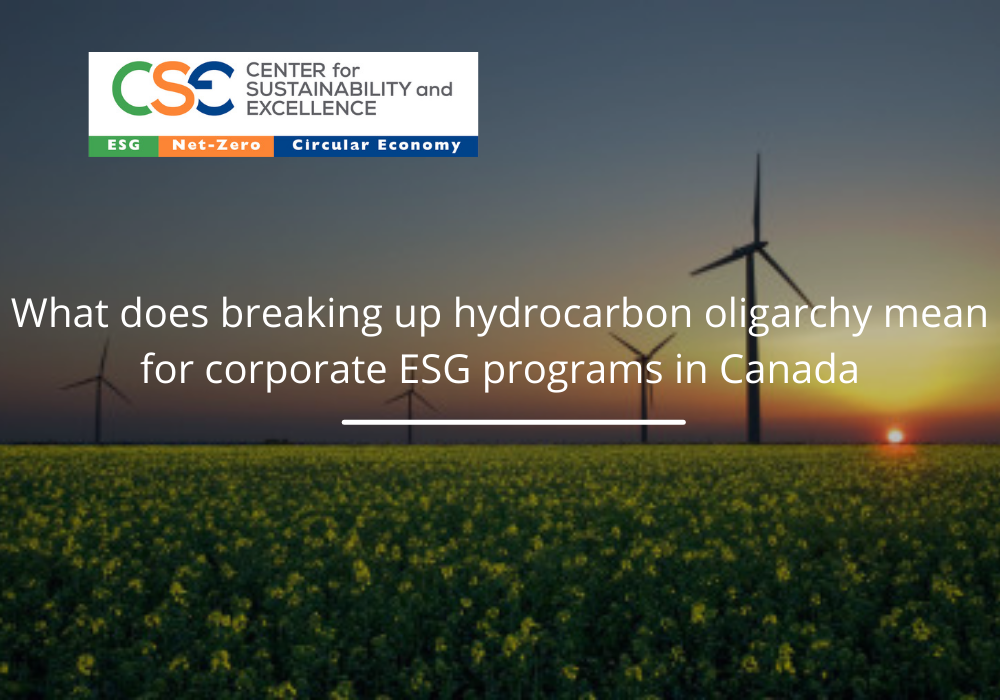by CSE Research Department
The challenging interrelation between energy policy, geopolitical security and corporate climate commitments following the invasion of Ukraine is beginning to emerge as top driver of ESG transformation globally. As history unfolds day by day and the international community is trying to design interventions to create a peace process and provide incentives for Russia to change course, the ultimate direction remains uncertain.
The implications for Canada, in terms of meeting the goals of security, energy and climate policy may be tremendous. More likely, Canada will face domestic and international pressures to establish its role as a secure source of fossil fuels for Western Europe and other consumers of Russian oil and gas. These developments could pose direct challenges to Canada’s existing climate change commitments and policies.
The outcomes of wars define governance structures, politics and policy directions for decades, even centuries, to come. Accelerating the implementation of an updated, more comprehensive European strategic plan toward clean fuels and a 40% reduction of the Russian oil and gas is expected to generate the optimization of the EU energy system. Humanitarian crisis, supply chain disruptions, price increases, cyberattacks come hand in hand with high-stake geopolitical events. Getting to the 22nd century is going to be a matter of breaking up hydrocarbon oligarchy. This whole war is actually one more piece of evidence that we need to shift to clean and safe sources of energy.
Even top firms with long-standing track records of successfully integrating ESG principles into their business strategy are finding it more difficult than ever to stay ahead of dynamic and constantly evolving ESG expectations. C-suite executives are eager to learn how to navigate through the new regulatory landscapes for Climate Risk and ESG Disclosures. These are some of the topics that will be covered in the upcoming CSE program, which is specially designed for C-level Executives, The Certified Sustainability ESG Practitioner Program, April 7-8 & 11, Leadership Edition 2022.
Let’s look at some of the key concerns and challenges, that Canada corporations face today. These are major issues for which senior executives need to quickly gain an in-depth understanding for and learn how to address in the immediate future:
- Understanding the new regulatory landscape and new disclosure frameworks taking place in regard to climate risk and low carbon economies
- Winning the ESG Race: CSE’s Research identifies ESG TOP 1O Performing companies in 16 leading sectors
- Facing diverse investor concerns and motivations
- Integrating ESG criteria into strategic goals and company reporting
- Facing the rising importance of social issues following the pandemic COVID-19 and the geopolitical tensions
- Gaining insight into global best practices for more impactful goal setting for sustainability
Leading by example in the new era of ESG means that lessons learned from managing through the COVID-19 pandemic can apply here: learn how to make Sustainability (ESG) a driver for organizational change and risk minimization.
The Center for Sustainability and Excellence (CSE) is once again pleased to be leading this inevitable shift, by welcoming registrations from leading corporations in Canada. Sustainability ESG Program in Canada will naturally gravitate to Energy and Finance. Even outside these sectors, sustainability touches all the companies which have anything to do with energy, water, agriculture, population and waste. That means all companies.
Claim your spot on time. Reach us at [email protected]







